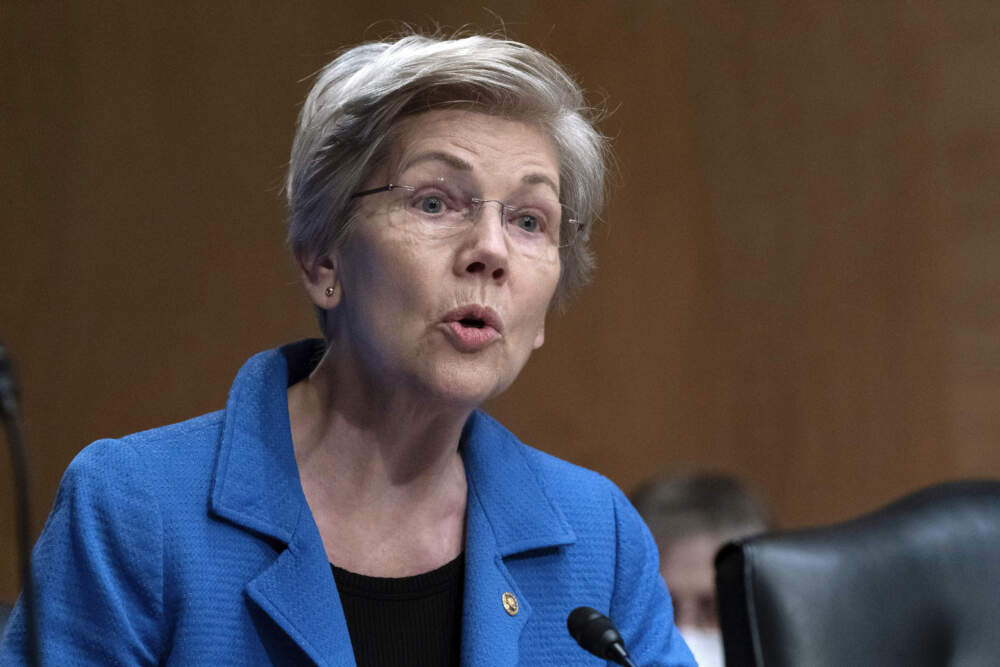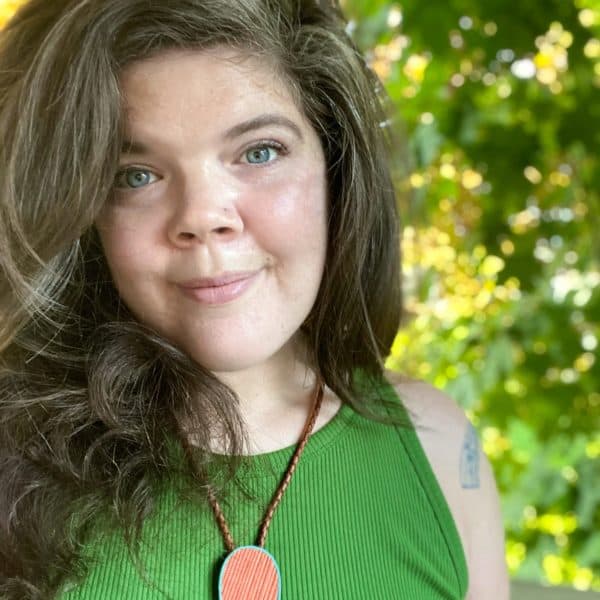Advertisement
Sen. Warren calls for two-state solution for Israel and Gaza
Resume
Elizabeth Warren is calling for a solution that ends the fighting in Israel and Gaza, but stopped short of calling for an outright ceasefire. Instead, the senator from Massachusetts said peace means a political solution.
"The goal is peace and peace is for me a two-state solution," said Warren. "It means that all the parties are working in the same direction. It means that Palestinians and Israelis can live in security. They can build their own futures. They can build a future for their children and their grandchildren. It's clear right now that we're not headed in that direction or have not been."
A temporary ceasefire between Israel and Hamas is set to end on Wednesday. Mediators are trying to extend the truce so more captives can be released and humanitarian aid can be brought into Gaza.
Constituents and activists have publicly asked Warren to call for a ceasefire between Israel and Hamas. While she has said she supported the temporary ceasefire, she has not called for an outright ceasefire — saying Israel has a right to defend itself, but it also has "an obligation to protect civilian life."
"The ultimate goal," she said on WBUR's Radio Boston, is "two states for two people."
Warren said Israel needs a leader who wants to work toward peace and that two-state solution. She said what's happening in the Middle East is difficult, and she wants people here in Massachusetts and around the world to be able to work through what they're feeling and thinking about it.
"I talk to people who have family in Israel, I talk to people who have family in Gaza, I talk to people who have lost people," she said. "And these conversations start out, over and over, with how isolated people feel — how they feel that they're not heard."
Warren said she wants to work toward "a lasting peace between the Palestinians and the Israelis."
This transcript has been lightly edited for clarity.
Interview Highlights
On where things stand right now:
"Israel has a right to defend itself, and also an obligation to protect civilian life. I started calling for a cessation in the bombing because of what it meant in terms of the number of innocent people, people who are Palestinians, who are trying to get on with their lives, who are being killed. I also pushed for the release of hostages because I think that's critically important, and trying to get more aid into Gaza, more humanitarian relief.
"What's happened in the last few days is there is a negotiated ceasefire that's actually accomplished all three of those objectives. Obviously the bombing has stopped. There is a ramp up in the humanitarian relief that's going in and we've all seen ... more of the hostages are making it home.
"I believe we ought to try to build on that. Ultimately, what we're aiming toward is a political solution here: two states for two people. And that means that we've got to start laying the foundation — we, others in the region, and obviously the Palestinians and the Israelis — to start laying the foundation for that two-state solution and build on this moment."
On her perspective of Israel's military actions:
"Israel has a right to defend itself, but it also has an obligation to avoid civilian harm, to protect civilian life. Bombing, as it's been carried out, trying to bomb in an area that is densely settled, in settlement camps, in apartment buildings, on sidewalks, on roads — that puts civilian death front and center, and that has to stop. It's why I called for a halt to the bombing and why I've said the bombing should not resume.
"That does not mean that Israel has no tools available to defend itself. It does not mean that Israel cannot pursue Hamas. But it does mean that Israel has to have, in all of its actions, a concern for civilian life that is necessary under international law and it is a part of domestic law here in the United States and part of our values. And I think ultimately, it's what serves moving us toward a peaceful solution. That is a solution that's a two-state solution, where people can live next to each other in security and with autonomy and self-determination over their own futures."
On the role Israeli Prime Minister Benjamin Netanyahu has played in the conflict:
"Prime Minister Netanyahu and his right-wing war cabinet are not pushing toward a two-state solution. They're going in a very different direction. And I think the way that Netanyahu has prosecuted this war has been a disaster, and I think it's not only been a disaster for Palestinians, I think ultimately it is a disaster for Israelis. Israel needs a leader who will work for peace and a two-state solution, and Netanyahu has made clear that he is not that leader."
"His military strategy has resulted in a humanitarian catastrophe and the deaths of thousands of civilians in Gaza and has endangered the region's long-term stability. That is the reason that I keep calling for the Israeli government to stop the bombing in Gaza and [why] I'm pressing for strong humanitarian relief in Gaza."
On what she's hearing from constituents:
"What I worry most about are the people I talk with, mostly around Massachusetts. I worry about mothers who are worried about their kids. I talk to people who have family in Israel. I talked to people who have family in Gaza. I talk to people who have lost people they loved — people they went to school with, people they went to camp with, people they spent summers with. And these conversations start out, over and over, with how isolated people feel, how they feel that they're not heard. And that is so fundamentally wrong and so hard on people.
"I want people to be able to say what they believe, to work through how they feel about what's happening. You know, it's hard what's happening in Gaza, what's happening in Israel, what's happening throughout the region. But here, in the United States, here in Massachusetts, people should be able to speak their minds, and to be able to speak their hearts.
"When I hear people who are hurting so much, I take that on and it, it makes me realize we must do better. We must do better here at home, and we must do better in pressing for a lasting peace between the Palestinians and the Israelis. That's what I commit myself to every day."
This article was originally published on November 29, 2023.
This segment aired on November 29, 2023.

